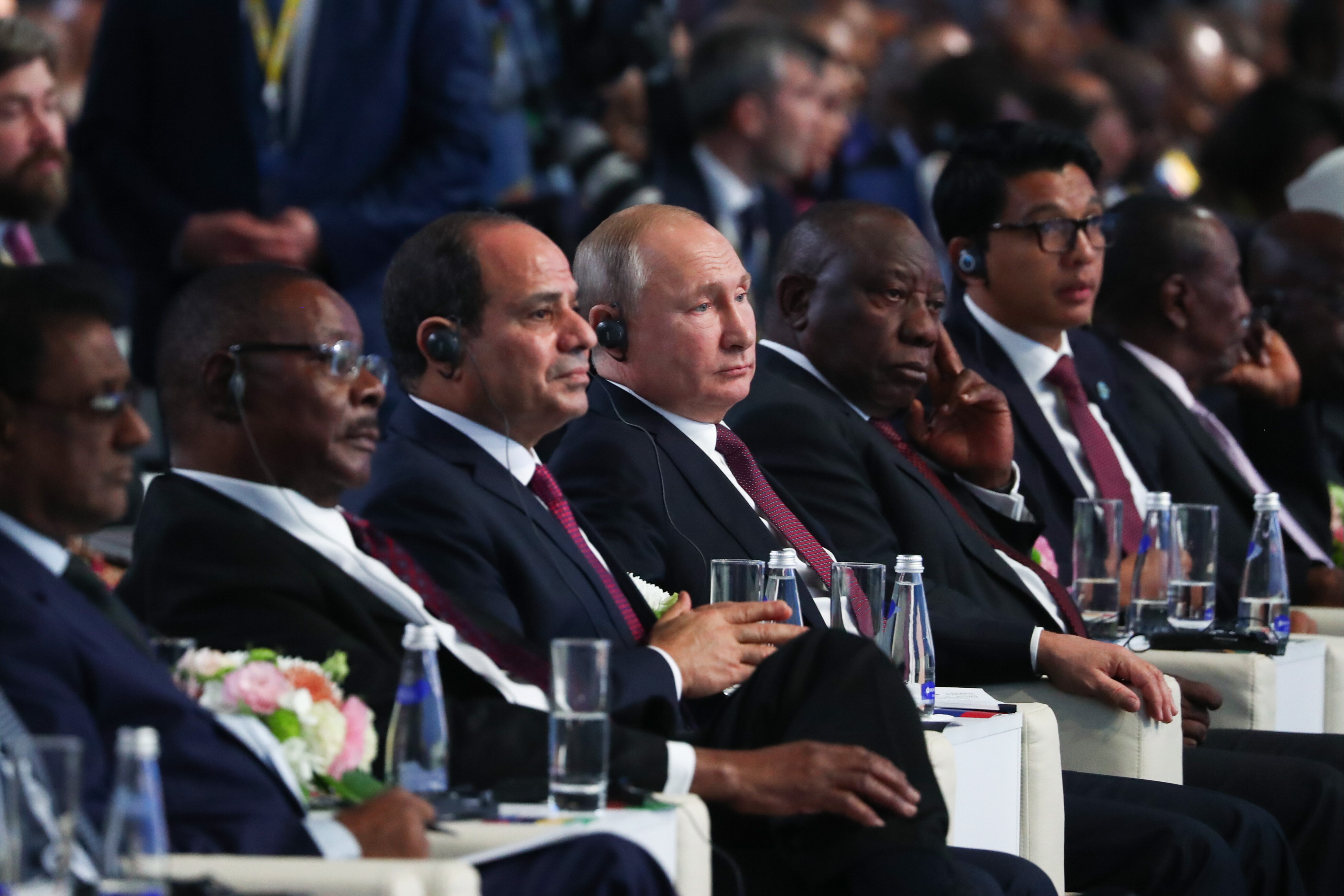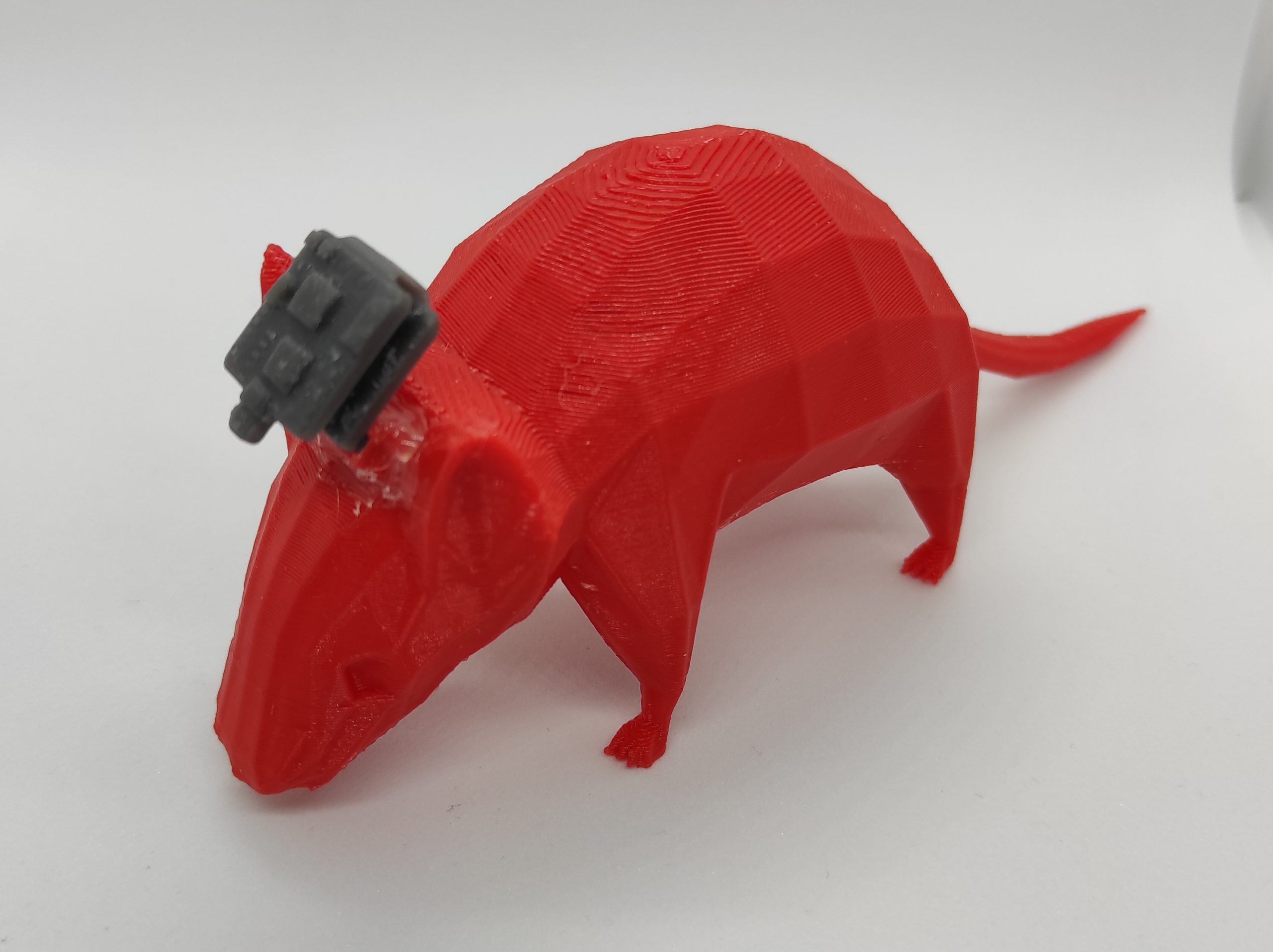Laboratory specialists took part in the Russia-Africa Economic Forum
On October 23-24, 2019, Sochi hosted the Summit and the Russia-Africa Economic Forum. Specialists from the Laboratory «Industrial Systems of Streaming Data Processing», SPbPU NTI Center, attended the Economic Forum.

The Russia-Africa Summit was the first event of that format in the history of Russian-African relations. The event was attended by heads of African states, representatives of Russian, African and international business, educational institutions and government agencies. The summit and the forum were co-chaired by President of the Russian Federation Vladimir Putin and President of the Arab Republic of Egypt, Chairman of the African Union Abdel Fattah Al-Sisi. As a result of the summit, a declaration was adopted in which agreed approaches on the development of Russian-African cooperation and deepening cooperation in the international arena were recorded.
The program of the Economic Forum consisted of three thematic blocks: “Developing Economic Relations”, “Creating Joint Projects” and “Cooperation in the Humanitarian and Social Sphere”, which included more than 30 business sessions.
Marina Bolsunovskaya, Head of the Laboratory of Industrial Systems for Streaming Data Processing, Dmitry Serov, Chief Specialist of the Laboratory, Expert in Digital Technologies and Management of Water Supply and Sanitation, representatives of laboratory’s industrial partners Dmitry Listratenko, Deputy General Director for Regional Development of Alliance Electro LLC and Sergey Luksha, Deputy General Director of Sovtekh LLC visited the Forum as part of the SPbPU delegation.
Dmitry Serov presented his report on the “Purification of natural and waste waters: opportunities for scientific, technological, industrial and educational cooperation” at the “Biosafety: current projects and prospects for cooperation” session devoted to cooperation between Russia and Africa in the humanitarian and social spheres.
Serov outlined the essential areas of interaction between Russia and Africa focused on the upgrading the situation in public health, which cannot be improved without resolving problems in the sphere of water supply, water use and sanitation. “The main challenges and threats to public health are associated with poor quality or lack of drinking water, as well as with the lack or absence of systems for collecting, treating, transporting and discharging effluents; this leads to diseases and epidemics – one of the most common causes of high mortality on the African continent,” said Dmitry Serov. “A scientifically-based comprehensive system of actions is needed to ensure the availability and safety of drinking water for human health, as well as the introduction of resource-saving technologies.”
The expert claimed that scientific and design developments of Russian specialists, including employees of the SPbPU NTI Center and its industrial partners and the cluster of production, scientific, educational and public organizations working together under the auspices of the Government of St. Petersburg in the region, can make a significant contribution to improving the situation in water supply and sanitation.
The speaker outlined the experience of Polytechnic University and the SPbPU NTI Center in implementing similar projects in Russia and abroad. For example, the SPbPU NTI Center is currently participating in the Digital Ob’-Irtysh Basin federal project, which is the basis for creating a basically new integrated water resources management system (in particular, the Ob’, Irtysh, Tom, Miass, Tobol and Toura rivers systems) with the use of digital technology for monitoring and control.
The speaker expressed his view that in the framework of cooperation with Africa, modern technological solutions developed by the laboratories of the SPbPU NTI Center and its industrial partners for the State Unitary Enterprise Vodokanal – St. Petersburg for water / wastewater treatment and management of the water supply and sanitation system can be used. These include:
- Modern blocks of two-stage water purification from surface sources
- Automated system for monitoring and managing city water supply
- Automated system for predicting and measuring precipitation (for the needs of storm and sewage management)
- Developments in the field of information modeling of networks and treatment facilities based on membrane technologies with the secondary use of treated wastewater
- Facilities for deep biological wastewater treatment
- Typical treatment facilities for surface water sources based on advanced accelerated sedimentation technology using weighting agents
- Typical sewage treatment plants for small settlements based on the biorotor technology
- Promising modular solutions for small towns and water supply in emergency situations.
These facilities and technologies, selected with the account of their possible replication in the African regions, were demonstrated to the Extraordinary and Plenipotentiary Ambassador of the Republic of Uganda, Johnson Agar Olva and the top officials of the Ministry of Water and Environment and the National Water and Sewerage Corporation during the visit of the Uganda delegation to St. Petersburg in 2018. The reciprocal delegation of the St. Petersburg Committee for External Relations and the SUE Vodokanal – St. Petersburg visited Kampala the same year, where a framework Memorandum of Understanding was signed between the Government of St. Petersburg and the Ministry of Water and Environment of the Republic of Uganda.
At the end of his report, based on the outcomes of the 2018 cooperation, Dmitry Serov proposed to establish joint Russian-African Competence Centers for the water supply and sanitation industry in Uganda (by virtue of the already existing memorandum) and other interested African countries.
Moderator of the session Anna Popova, head of the Federal Service for Supervision of Consumer Rights Protection and Human Well-Being (Rospotrebnadzor), endorsed this proposal and suggested to open a Virtual Competence Center on the basis of the SPbPU NTI Center in November 2019.
The main areas of its activity are:
- Elaboration of a development strategy for the water supply and sanitation industry
- Development of sectoral scientific and educational cooperation with russian organizations
- Creation of digital twins of objects; promotion of information modeling technologies and big data for preparing and implementing projects in the field of water supply and sanitation
- Formation of a unified environment, aka the “ecosystem” for the development, progress and implementation of the best technologies and practices in the industry
- Creation of conditions for the promotion of russian technologies and equipment, including through participation in the feasibility studies and in pre-design developments
- Assistance in attracting russian investments for projects in the water supply and sanitation.
“Participation in the Russia-Africa economic forum opens up a wide field for the SPbPU NTI Center and the Laboratory of Industrial Systems for Streaming Data Processing for applying its competencies,” said Marina Bolsunovskaya, head of the PSPOD Laboratory at the SPbPU NTI Center. “At the strategic level, this is participation in the development of a biosafety strategy and the development of the water supply and sanitation industry in the interested African states as part of investment projects: introduction of modern information modeling methods in the design of water supply and sanitation facilities, creation of their digital twins showing all changes during the life cycle of networks and structures.”

